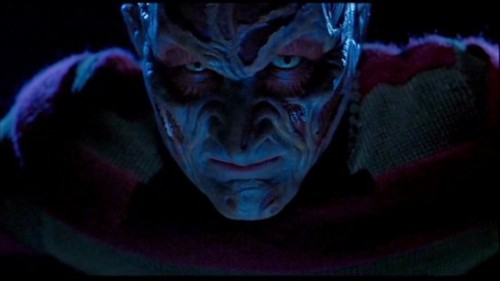After more than four decades of making movies, Wes Craven, the original Dream Master, has passed away at the age of 76 from brain cancer. Fans of horror and slasher films know the director and screenwriter well, having played a central role in developing and informing the youth-horror genre throughout the 1980s and 90s. Before making his official directorial debut with the infamous and controversial 1972 exploitation-film, The Last House on the Left, Craven taught English at Westminster College and humanities at Clarkson University in Postdam, NY. Soon after the critical and commercial success of Last House on the Left, Craven went on to direct a number of films including The Hills Have Eyes (1977), Stranger in Our House (1978) and Swamp Thing (1982). Though working consistently as a director, it wasn’t until 1984 that Craven would establish himself as a household name with an idea for a film that literally gave him nightmares throughout his childhood.

“I thought they’ll never be a sequel. Boy was I stupid.”-Wes Craven on A Nightmare on Elm Street
Craven is perhaps best known among filmgoers and critics alike for writing and directing 1984’s A Nightmare on Elm Street, which not only introduced slasher icon Freddy Krueger, played famously by Robert Englund, but established a multi-million dollar horror franchise that produced several sequels and spin-offs. Although Craven co-wrote A Nightmare on Elm Street III: Dream Warriors, he wouldn’t return to the franchise as a director again until New Nightmare, which acted as a meta-sequel to the original film, playing with the idea that Freddy Krueger himself was not just a fictional character in a movie, but an evil entity that could cross into our world. Since its 1994 debut, the film has been praised by critics for its commentary on the state of the horror genre and the film industry as a whole.
Enjoying the idea of making meta-horror movies, Craven would eventually apply New Nightmare’s meta-criticism to 1996’s Scream. Arguably his greatest commercial success, Scream and its three sequels referenced and exploited common tropes often found in horror movies, and frequently made efforts to subvert audience expectations. Earning more than $600 million combined, the Scream films have come to be viewed by many horror and slasher fans of re-invigorating interest in horror movies throughout the 1990s.
“That’s my mom’s favorite movie of mine, because it was the only one she saw. It was something that I was really drawn to. Horror films are not me, or they’re not all of me. They’re a very thin slice of me.”-Wes Craven on Music of the Heart
Though often anchored to the Elm Street and Scream franchises, Craven also directed a number of other films and cult hits. Such films included Serpent and the Rainbow (1988), which dealt with Haitian voodoo; The People Under the Stairs (1991), a reverse-style home invasion movie; and Vampire in Brooklyn (1995), a horror-comedy starring Eddie Murphy and Angela Basset. Perhaps his greatest cinematic departure from the genre that made him famous for being a filmmaker was with Music of the Heart (1999), a film based on the life of musician Roberta Guaspari (Meryl Streep), who helped co-found the Opus 118 Harlem School of Music. The film earned several Academy Award nominations, including a Best Actress nomination for Streep.
When taking the time to look back on someone’s career in writing or film, you can really start to see the things that influenced them throughout history. Craven was not only very much in touch with youth-culture during his most active decades as a filmmaker, but he was painfully aware of the ways in which fear, anger and intolerance often influenced our society. He believed that film could reflect those things and act as an educational tool of release, allowing us not to embrace our fears, but to reflect upon them. At the same time, he never forgot to make some ridiculously enjoyable movies. So I and everyone else on One Of Us want to thank Wes Craven for his contributions to cinema and wish his family all the best through this enormously difficult time.
May your dreams be forever peaceful, sir.

